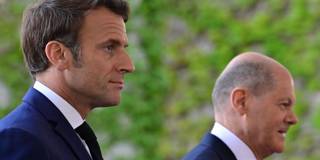Although Europe desperately needs a new strategic outlook, it remains obsessed with a politics of consensus, and thus is stuck with a stultifying orthodoxy propagated by official circles in Berlin and Paris. That means its future may depend on Britain, Italy, and Poland creating a new political center of gravity.
SALZBURG – There is something rotten in the state of Europe. Central to French President Emmanuel Macron’s speech at the Sorbonne in April was a warning that Europe is mortal – “it can die.” Many feel an urgent need for new thinking, new leadership, and new ideas, yet it is hard to say where these might be found. Generating new ideas and forging new principles requires open debate. But Europe remains obsessed with a politics of consensus, and thus is stuck with a stultifying orthodoxy propagated by official circles and elite opinion in Berlin and Paris.

SALZBURG – There is something rotten in the state of Europe. Central to French President Emmanuel Macron’s speech at the Sorbonne in April was a warning that Europe is mortal – “it can die.” Many feel an urgent need for new thinking, new leadership, and new ideas, yet it is hard to say where these might be found. Generating new ideas and forging new principles requires open debate. But Europe remains obsessed with a politics of consensus, and thus is stuck with a stultifying orthodoxy propagated by official circles and elite opinion in Berlin and Paris.